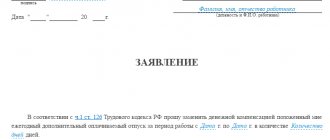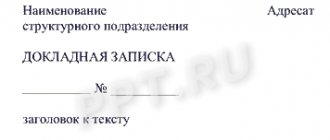Types of theft
The most common are simple thefts with damage exceeding 2.5 thousand rubles. according to Part 1 of Art. 158 of the Criminal Code of the Russian Federation.
Qualified types of secret theft, Part 2 of Art. 158 of the Criminal Code of the Russian Federation:
- entering a storage facility or other premises;
- causing significant damage (at least 5 thousand rubles);
- from clothes, bags with the victim.
As well as especially qualified thefts provided for in Part 3 of Art. 158 of the Criminal Code of the Russian Federation:
- with illegal entry into a home;
- on a large scale (more than 250 thousand rubles).
Other species are also recorded, but less frequently.
How to write and where to file a statement about theft of property
Theft has been and remains one of the most common crimes. This is the first crime of the Criminal Code of the Russian Federation in the block of criminal attacks against property. Statistics show that citizens who contact law enforcement agencies most often write a report specifically about theft.
Types of theft
The most common are simple thefts with damage exceeding 2.5 thousand rubles. according to Part 1 of Art. 158 of the Criminal Code of the Russian Federation.
Qualified types of secret theft, Part 2 of Art. 158 of the Criminal Code of the Russian Federation:
- entering a storage facility or other premises;
- causing significant damage (at least 5 thousand rubles);
- from clothes, bags with the victim.
As well as especially qualified thefts provided for in Part 3 of Art. 158 of the Criminal Code of the Russian Federation:
- with illegal entry into a home;
- on a large scale (more than 250 thousand rubles).
Other species are also recorded, but less frequently.
Where to file a report of theft?
Regardless of the circumstances, the investigation of criminal cases of theft falls under the competence of the police, namely investigators who investigate simple thefts, and investigators who are responsible for cases of qualified and especially qualified thefts. Therefore, a report of theft should be written to the police.
Police department at the scene of the crime
According to the rules of jurisdiction established by Art. 152 of the Code of Criminal Procedure of the Russian Federation, pre-trial proceedings, which include an inspection and then an investigation of the crime, are carried out at the place where the crime was committed.
To reduce the time from the moment of filing an application to making a decision, you need to contact the police department serving the territory in which the theft occurred.
There are situations when it is impossible to indicate a specific location where property was stolen. For example, when the theft occurred while driving on public transport, while walking or in other similar situations.
In this case, you need to contact the police department in whose service territory the fact of missing property was discovered, since this particular place will be considered a crime scene.
Police department at the victim's place of residence
It is not prohibited to contact the police department at the victim’s place of residence. But if the police departments at the place of residence of the victim and the place where the theft was committed do not coincide, the application and collected materials will be sent to the department at the place where the crime was committed. The victim will lose approximately 3-10 days for verification and a decision on referral, forwarding, registration and conducting the verification almost all over again.
You should file a report of theft immediately with the internal affairs department at the place where the crime occurred - this will save valuable time.
How to file a theft report to the police, sample
A report of theft to the police can be divided into 3 parts:
- The formal part is the “header” of the application, where the address of the police department and details of the official in whose name the document is drawn up are written. The formal part includes information about the applicant, his personal and contact information, the date of execution of the document, and the signature of the victim.
- The constructive part includes a description of the circumstances of the crime, details of what happened, information about the suspects, and a request to punish the perpetrators.
- Additional information . Separately, it is necessary to provide materials that can help the investigation, for example, footage of the alleged criminal from a home surveillance camera. Attach a list of witnesses in this case (if any) with contact phone numbers and residential addresses.
Yulia Kalinina
Consumer Protection Lawyer
Ask me a question
The circumstances of the crime that occurred must be described in great detail, without emotional overtones. The information must be reliable, the applicant is warned of liability for giving false testimony.
Submission order
There is no regulated procedure for filing a complaint about theft to the police, which the applicant must adhere to.
There are many options for submitting such requests to law enforcement agencies:
- personal application with a written statement;
- reporting theft by phone;
- filing a crime report by mail;
- sending a request by e-mail and others.
On the websites of territorial divisions of the Ministry of Internal Affairs there are special services for sending reports of crimes with a detailed description and explanation for filling them out.
The most effective way is personal appeal. Statements about thefts and other crimes are received and registered around the clock by employees of the Duty Units of territorial police units or, for short, DCs.
The law allows you to transfer a statement in any form to authorized employees outside the police department building. For example, they could be a local police officer.
How to write an application correctly?
The departmental instructions of the Ministry of Internal Affairs on this issue indicate that all reports of crimes in any form, without restrictions related to the place, time of their commission, or the completeness of the information provided, must be accepted in any territorial unit of the Ministry of Internal Affairs.
Thus, the form and content of the theft statement are not particularly important, however, established writing rules should be followed to make it easier for police officers to navigate. A sample of the filling can be placed on information stands in the DC premises.
Writing rules:
- The application should be addressed to the head of the police department, indicating the title of the position, rank and full name in the header.
- Below are the applicant's details - full name, contact information. It is better to indicate all the ways in which it is possible to contact the applicant: address of residence, registration, email, telephone number for quick communication and sending documents.
- In the center of the sheet there should be the title of the document - a statement, and then you need to briefly state the essence of what happened and the request to conduct an inspection and bring the culprit to justice.
It is not forbidden to present the circumstances of the theft in detail, but it is preferable to write down the basic facts and reflect the details in the explanation, which is most often taken by police officers after registering the statement.
reports to the police about theft
In the explanations, it is necessary to provide the most complete information both about the item of theft (what was stolen, individual characteristics: brand, color, size, etc.) and features (scuffs, chips, cracks, etc.), and about the circumstances of the theft - everything that maybe remember. When receiving an explanation, the police officer may ask questions that should also be answered as fully as possible.
If it is difficult to remember everything, it is possible to ask to postpone the survey to another day, and also to prepare notes or the explanation itself at home in a calm environment.
It is necessary, but not required, to attach copies of documents for the stolen property to the theft statement. It is better to include copies, because the originals can be seized in a certain way when a criminal case is initiated so that they can be used as material evidence. If a case is not initiated, the originals may be useful, but taking them away from the material is a waste of time.
This is true when your phone is stolen . In this case, you should indicate:
- the number with which the phone was used;
- its unique identification number is IMEI.
When reporting a phone theft, you can attach a copy of the warranty card with the purchase receipt, or part of the packaging box on which the IMEI is indicated.
However, there is no need to worry if the documents on your phone are not saved. Its identification number is easy to establish using call details from the SIM card that was used with the phone. In this case, it makes sense to bring details.
police reports about phone theft
The application must contain the personal signature of the applicant. There must be a handwritten note warning the applicant about liability for knowingly false denunciation under Art. 306 of the Criminal Code of the Russian Federation, also certified by his personal signature.
It often happens that the victim is not sure whether a theft has been committed or whether he has simply lost his property. Because of this uncertainty and fear of responsibility for denunciation, he simply does not go to the police. This fear is completely unfounded.
Establishing the circumstances of the loss and the presence of a criminal component in them is the task of the police. Criminal liability for knowingly false denunciation can arise only when the applicant reliably knew that the crime he reported to the police did not occur.
When applying to the DC, it is advisable to have a passport with you, but there is no requirement to have one. The absence of a passport is not a basis for refusing to accept an application, due to the fact that police officers have other ways to establish identity.
When submitting an application to the DC, the applicant is required to issue an important document called a coupon - notification. This document contains information about the date and time of the appeal, its registration number in a special book (KUSP), data of the official who accepted the appeal. Using these details, it is subsequently easier to track the status of the request.
How to write a statement to the police about the theft of scrap metal?
Hello. How to write a petition to the investigator under Art. 158 part 1? Scrap metal was stolen, it is not worth it on the balance sheet! How to justify?
Lawyer Lebedev Z.S.
Good afternoon According to Articles 140, 141, 144 of the Criminal Procedure Code, the reasons for initiating a criminal case are: 1) statement of a crime; 2) surrender; 3) a message about a crime committed or being prepared, received from other sources; 4) the prosecutor’s decision to forward the relevant materials to the preliminary investigation body to resolve the issue of criminal prosecution. The reason for initiating a criminal case for crimes under Article 172.1 of the Criminal Code of the Russian Federation is only those materials that are sent by the Central Bank of the Russian Federation in accordance with the Federal Law of July 10, 2002 N 86-FZ “On the Central Bank of the Russian Federation (Bank of Russia )”, as well as the bankruptcy trustee (liquidator) of a financial organization to resolve the issue of initiating a criminal case. The basis for initiating a criminal case is the presence of sufficient data indicating signs of a crime. Reporting a crime can be made orally or in writing. A written statement of a crime must be signed by the complainant. An oral statement about a crime is entered into a protocol, which is signed by the applicant and the person who accepted the statement. The protocol must contain information about the applicant, as well as documents identifying the applicant. If an oral report of a crime is made during an investigative action or during a trial, it is entered, respectively, in the protocol of the investigative action or the protocol of the court session. In the event that the applicant cannot be personally present when the protocol is drawn up, his application is drawn up in the manner established by Article 143 of this Code. The applicant is warned of criminal liability for knowingly false denunciation in accordance with Article 306 of the Criminal Code of the Russian Federation, about which a note is made in the protocol, which is certified by the signature of the applicant. An anonymous report of a crime cannot serve as a basis for initiating a criminal case. A confession is a voluntary statement by a person about the crime he has committed. A statement of confession can be made either in writing or orally. An oral statement is accepted and entered into the protocol in the manner established by part three of Article 141 of this Code. A message about a crime committed or being prepared, received from sources other than those specified in Articles 141 and 142 of this Code, is accepted by the person who received this message, and a report on the discovery of signs of a crime is drawn up. Federal Law No. 87-FZ of June 5, 2007 introduced amendments to Article 144 of this Code, which come into force 90 days after the date of official publication of the said Federal Law. any committed or impending crime and, within the competence established by this Code, make a decision on it no later than 3 days from the date of receipt of the specified message. When checking a report of a crime, the inquiry officer, the inquiry body, the investigator, the head of the investigative body has the right to receive explanations, samples for comparative research, request documents and objects, seize them in the manner established by this Code, order a forensic examination, take part in its production and obtain a conclusion expert within a reasonable time, carry out an inspection of the scene of the incident, documents, objects, corpses, examination, demand documentary checks, audits, studies of documents, objects, corpses, involve specialists in these actions, give the body of inquiry a binding written order to carry out operational search activities. Persons participating in the production of procedural actions when checking a report of a crime are explained their rights and obligations provided for by this Code, and are provided with the opportunity to exercise these rights to the extent that the procedural actions performed and procedural decisions made affect their interests, including the rights not testify against yourself, your spouse and other close relatives, the circle of whom is defined in paragraph 4 of Article 5 of this Code, use the services of a lawyer, and also file complaints against the actions (inaction) and decisions of the investigator, the head of the inquiry unit, the head of the agency inquiry, inquiry body, investigator, head of the investigative body in the manner established by Chapter 16 of this Code. Participants in the verification of a crime report may be warned about the non-disclosure of data from pre-trial proceedings in the manner established by Article 161 of this Code. If necessary, the safety of a participant in pre-trial proceedings is ensured in the manner established by part nine of Article 166 of this Code, including when receiving a report of a crime. Information obtained during the verification of a crime report may be used as evidence, subject to the provisions of Articles 75 and 89 of this Code. If, after the initiation of a criminal case, the defense or the victim submit a request for an additional or repeated forensic examination, then such a request must be granted. According to a report of a crime disseminated in the media, the inspection is carried out on behalf of the prosecutor by the inquiry body, as well as on behalf of the head of the investigative body by the investigator. The editorial office and the editor-in-chief of the relevant mass media are obliged to hand over, at the request of the prosecutor, investigator or body of inquiry, the documents and materials at the disposal of the relevant mass media confirming the report of a crime, as well as information about the person who provided the specified information, except in cases where this the person set a condition to keep the source of information secret. The head of the investigative body, the head of the inquiry body has the right, at the motivated request of the investigator or interrogating officer, respectively, to extend the period established by part one of this article to 10 days. If it is necessary to carry out documentary checks, audits, forensic examinations, studies of documents, objects, corpses, as well as conduct operational search activities, the head of the investigative body at the request of the investigator, and the prosecutor at the request of the investigator, has the right to extend this period to 30 days with mandatory indication of specific, the actual circumstances that served as the basis for such an extension. The applicant is issued a document confirming the acceptance of a crime report indicating information about the person who received it, as well as the date and time of its acceptance. A refusal to accept a report of a crime may be appealed to the prosecutor or to the court in the manner established by Articles 124 and 125 of this Code. The application of the victim or his legal representative in criminal cases of private prosecution, submitted to the court, is considered by the judge in accordance with Article 318 of this Code. In the cases provided for in part four of Article 147 of this Code, verification of a crime report is carried out in accordance with the rules established by this article. When a message about crimes under Articles 198 - 199.1 of the Criminal Code of the Russian Federation is received from the body of inquiry, the investigator, in the absence of grounds for refusing to initiate a criminal case, within no later than three days from the date of receipt of such a message, sends it to a higher tax authority in relation to the tax authority with which the taxpayer is registered with the tax authorities (tax agent, fee payer, insurance premium payer), or upon receipt of a message from the inquiry body about crimes provided for in Articles 199.3 and 199.4 of the Criminal Code of the Russian Federation - to the territorial body of the insurer in which they are registered registration of an insured - an individual or an insured organization who is obliged to pay insurance premiums for compulsory social insurance against accidents at work and occupational diseases to a state extra-budgetary fund (hereinafter in this article - the insured), a copy of such a message with the attachment of relevant documents and a preliminary calculation the estimated amount of arrears on taxes, fees and (or) insurance premiums. Based on the results of consideration of the materials sent by the investigator in the manner established by part seven of this article, the tax authority or the territorial body of the insurer, no later than 15 days from the date of receipt of such materials: 1) sends to the investigator a conclusion on violation of the legislation of the Russian Federation on taxes and fees and ( or) the legislation of the Russian Federation on compulsory social insurance against industrial accidents and occupational diseases and on the correctness of the preliminary calculation of the amount of the expected arrears of taxes, fees and (or) insurance contributions in the event that the circumstances specified in the report of the crime were the subject of research when conducting a previously appointed tax audit or checking the correctness of calculation, timeliness and completeness of payment (transfer) of insurance contributions for compulsory social insurance against industrial accidents and occupational diseases, as a result of which a decision of the tax authority or territorial body of the insurer has entered into force, as well as information about appealing or suspending the execution of such a decision; 2) informs the investigator that a tax audit or verification of the correctness of calculation, timeliness and completeness of payment (transfer) of insurance contributions for compulsory social insurance against industrial accidents is being carried out in relation to the taxpayer (tax agent, fee payer, insurance premium payer) or the insurer and occupational diseases, based on the results of which a decision has not yet been made or has not entered into legal force; 3) informs the investigator about the absence of information about a violation of the legislation of the Russian Federation on taxes and fees and (or) the legislation of the Russian Federation on compulsory social insurance against industrial accidents and occupational diseases if the circumstances specified in the report of the crime were not the subject of investigation when conducting a tax audit or checking the correctness of calculation, timeliness and completeness of payment (transfer) of insurance contributions for compulsory social insurance against industrial accidents and occupational diseases. After receiving the conclusion of the tax authority or the territorial body of the insurer, but no later than 30 days from the receipt of the report of the crime, based on the results of consideration of this conclusion by the investigator, a procedural decision must be made. A criminal case for crimes provided for in Articles 198 - 199.1, 199.3, 199.4 of the Criminal Code of the Russian Federation may be initiated by the investigator before receiving from the tax authority or territorial body of the insurer the conclusion or information provided for in part eight of this article, if there is a reason and sufficient data indicating for signs of a crime. Thus, a crime can be reported either orally or in writing. When submitting an application in writing, it must indicate the name of the body to which the application was submitted, the message itself, the full name and contact information of the applicant, the date of filing and the signature of the applicant.
Sincerely, lawyer Zakhar Lebedev, partner of the law firm Antonov and Partners.
Still have questions for your lawyer? Ask them right now here, or call us by phone in Moscow +7 (499) 288-34-32 or in Samara +7 (846) 212-99-71 (24 hours a day), or come to our office for a consultation (by pre-registration)!
Submission deadline
There is no time limit for filing a theft report. The only limit is the period during which a criminal can be prosecuted, called the statute of limitations. In other words, a statement about theft of property can be written regardless of when it was committed, but after the statute of limitations has expired, it will not be possible to punish the criminal.
The person who stole property is exempt from liability by law if 2 years have passed since the commission of a simple theft, 6 years after a qualified theft, and 10 years after a particularly qualified theft.
Thus, in order for the criminal to bear responsibility adequate for the crime committed, it is preferable to write a statement of theft of property within the statute of limitations for bringing to justice. And it’s better to do this immediately, because the sooner it gets to the police, the greater the likelihood of the stolen property being discovered and returned.
Can I withdraw my application?
A statement about theft, like about any crime, cannot be withdrawn. Based on the registered report of a crime, a pre-investigation check must be carried out, and a decision must be made based on its results.
Criminal cases of theft are cases of public prosecution, which means that the criminal prosecution of the perpetrator is carried out regardless of the will of the applicant.
If an application is filed and verification shows that a crime has taken place, a criminal case will be initiated, regardless of whether the victim wants it.
If the results of the inspection conclude that there was no theft, a decision will be made to refuse to initiate a case, after which the process will be completed, also regardless of the wishes of the applicant.











